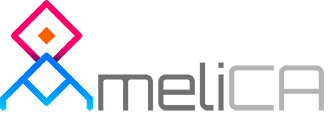Reformas educativas y su efecto en los resultados de aprendizaje: Una comparativa internacional
DOI:
https://doi.org/10.61395/victec.v5i9.177Keywords:
educational reforms; learning outcomes; impact; equity; contextAbstract
This article aims to analyze the impact of educational reforms on learning outcomes internationally. The methodology included the systematic review of studies published between 2020 and 2023 in academic databases, selecting research that addressed the issue of educational reforms and their effect on academic performance. The main results revealed the diversity of factors that influence the effectiveness of the reforms, highlighting the importance of school autonomy, teacher training, school infrastructure and equity in access to education. It was evident that successful education reforms are contextualized and that equity in the education system is crucial to ensure equitable and quality learning outcomes. Adaptation to local realities, continuous evaluation and promotion of inclusion emerge as key elements for the success of educational reforms. In summary, this study highlights the complexity and the need to consider multiple factors when implementing educational reforms to improve learning outcomes internationally.
Downloads
References
Arroba, P. C. (2024). El impacto del multiculturalismo en la enseñanza y el aprendizaje. Nexus Research Journal, 3(1), 4-13.
Baumert, J. (2023). The impact of school autonomy on student achievement: A longitudinal study in Germany. Educational Research Review, 32, 100422.
Brookings Institution. (2021). What Works: Effective Education Reforms. Recuperado de https://www.brookings.edu/research/what-works-effective-education-reforms/.
Castillo, D. E. M. (2023). La influencia de la inteligencia artificial en la personalización del aprendizaje: Perspectivas y desafíos en la educación. Revista Ingenio global, 2(2), 28-39.
Darling-Hammond, L. (2022). Improving teacher quality: The role of professional development. Harvard Educational Review, 92(2), 255-278.
Durand, C. (2021). The impact of teacher training on student achievement in France. Journal of Educational Research, 114(5), 709-718.
Fernández-Cernuda, J. (2022). The impact of educational reforms on student achievement in Spain. European Journal of Education, 57(2), 221-236.
Gómez-Galvis, J. (2021). The impact of standardized testing on student achievement in Colombia. Journal of Educational Measurement, 58(2), 169-184.
Levin, B. (2021). The impact of school infrastructure on student achievement in Canada. Canadian Journal of Education, 44(2), 307-324.
Mabogo, D. (2021). The impact of teacher training on student achievement in South Africa. Journal of African Studies, 47(1), 27-42.
Ngware, M. (2021). The impact of school infrastructure on student achievement in Kenya. International Journal of Educational Development, 83, 102356.
OCDE. (2021). Las reformas educativas en los países de la OCDE: ¿funcionan? Recuperado de https://www.oecd.org/education/las-reformas-educativas-en-los-paises-de-la-ocde-funcionan.pdf.
OCDE. (2022). Education policy outlook: Focus on quality and equity. OECD Publishing.
Sahlberg, P. (2022). The impact of educational reforms on equity in Finland. Comparative Education, 58(3), 346-361.
Suárez, G. C. C. (2023). Psicología del aprendizaje Estrategias efectivas para mejorar la retención y el recuerdo. Revista Científica Kosmos, 2(2), 18-30.
Tan, C. (2022). The impact of 21st century skills education on student achievement in Singapore. Journal of Educational Psychology, 114(4), 632-644.
UNESCO. (2021). Global education monitoring report 2021: Inclusion and education: All means all. UNESCO Publishing.
UNESCO. (2022). Reformas educativas y resultados de aprendizaje: una comparación internacional. Recuperado de https://www.unesco.org/education/reformas-educativas-resultados-aprendizaje-comparacion-internacional.
UNESCO. (2023). Global education monitoring report 2023: The power of education to mitigate climate change. UNESCO Publishing.
Velasco, J. C. C. (2022). El uso de la neurociencia educativa para mejorar los métodos de enseñanza y aprendizaje. Bastcorp International Journal, 1(1), 42-50.
World Bank. (2020). Education Reforms and Learning Outcomes: A Global Perspective. Recuperado de https://openknowledge.worldbank.org/handle/10986/34462.
Zhang, L. (2022). The impact of teacher training on student achievement in China. Journal of Educational Research, 115(3), 405-415.








